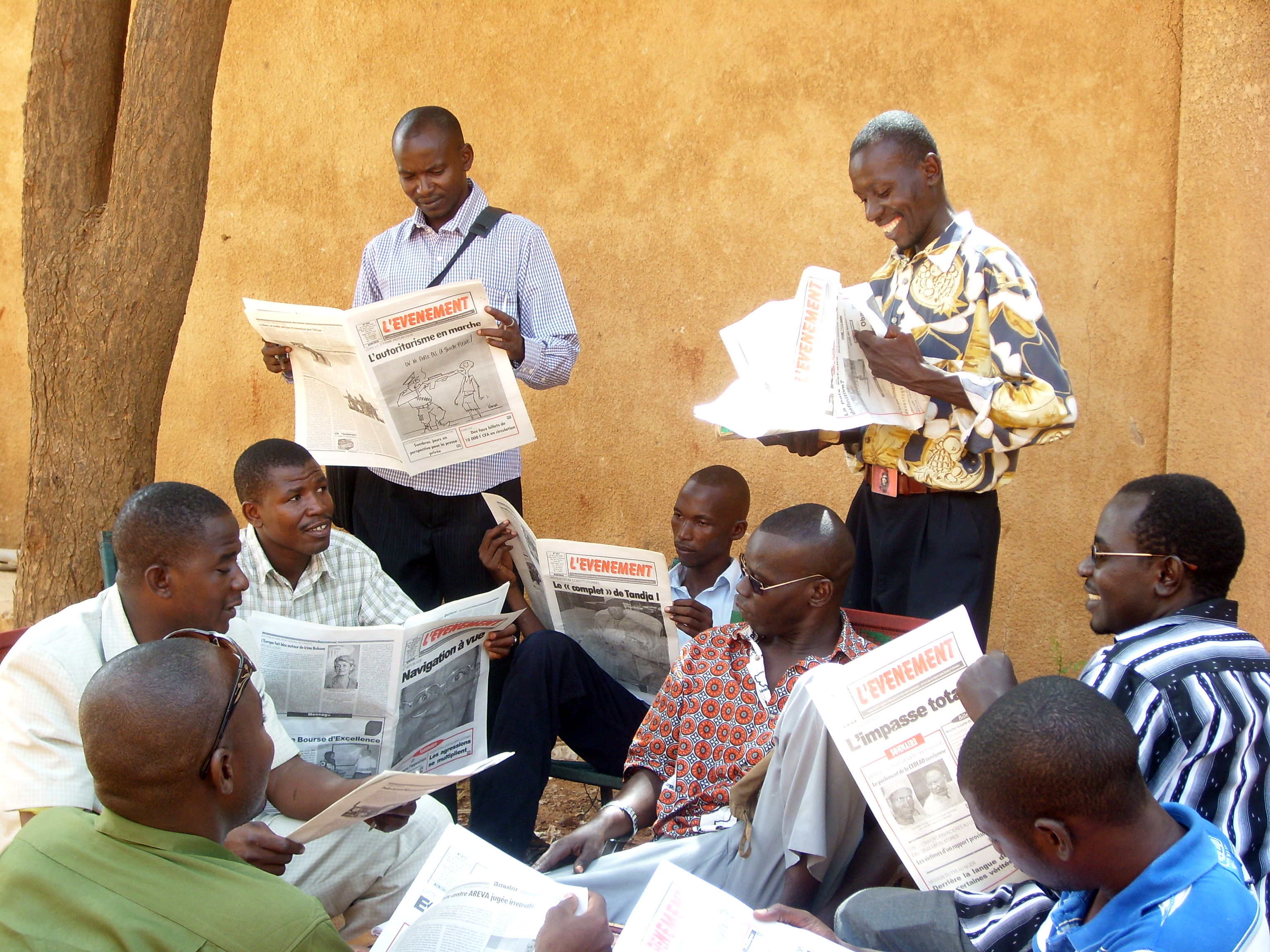Political situation The hopes of the Niger people rest on the President
Men in Niamey, Niger, reading newspapers
Supporters of one of the unsuccessful presidential candidates have been regularly turning to the streets to protest against the President. Since January 2021, several hundred people have been killed in terrorist attacks allegedly committed by Islamists in the border region with Burkina Faso and Mali.
Lack of confidence in the state
The government is unable to meet the basic needs of its people and keep them safe. Consequently, the population lacks confidence in the state.
Despite the great progress that has been made, democracy and the rule of law have still not been adequately established in the Niger. Day-to-day political life is characterised by the pursuit of individual interests based on ethnic and regional origin. Corruption is ever-present and contributes to the weakness of state institutions. On the Corruption Perceptions Index published in 2022 (External link) by the non-governmental organisation Transparency International, the Niger ranks 123rd out of the 180 countries indexed.
The judiciary is not yet independent. Court judgements are influenced by political officials, family relationships and patronage networks. Furthermore, Islamic law and traditional law exist side by side with official legislation. The result is that regulations which are at odds with official legislation, and which are sometimes discriminatory, continue to exist and apply in everyday life.
Some progress has been made towards greater democracy and the rule of law by decentralising parts of the administrative system. However, not enough has been done to prepare the population for this process. Many municipal officials have had little training. Furthermore, it is unclear in many places how financial resources are allocated.
Civil society organisations have become increasingly important in recent years. Many of them have joined together to form umbrella organisations and networks in order to unite forces. However, most of these organisations are too poorly equipped in terms of finances and staff to be able to exert any greater political influence or play any kind of monitoring role.
As at: 05/05/2023
